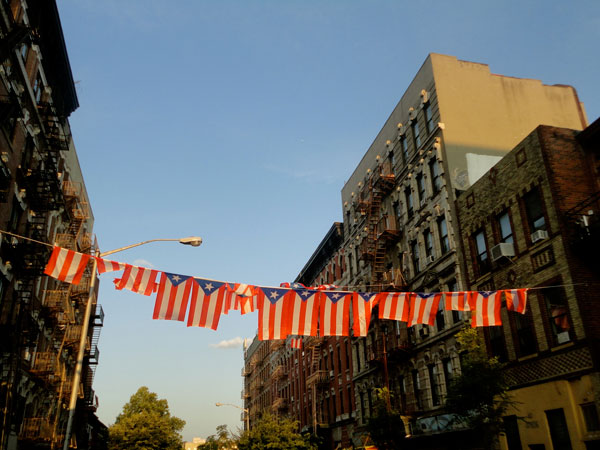
Photo by: bitchcakesny, courtesy of Flickr
Puerto Rican flags strung across a street in South Williamsburg
After 30 years in a federal prison in rural Illinois, Puerto Rican political prisoner Carlos Alberto Torres walked free Monday, and celebrated with a group of his supporters in Chicago. In New York — and possibly all around the world – however, opinions within the Puerto Rican community have been mixed about whether Torres should receive a hero’s welcome.
“A great injustice has been done to him. If you look at his case and [the cases of his fellow defendants] there haven’t been any formal charges against them that involve violence,” said Councilwoman Mark-Viverito, one of three New York City elected officials who attended Torres’ reception in Chicago. “This [wrongful imprisonment] has reinforced the colonial relationship that exists between the United States and Puerto Rico.”
Puerto Rico has been part of the United States in one form or another since the 1898 Spanish-American War and its citizens have never had the right to vote in Presidential elections. Nor do they have voting U.S. congressional representation. But many Puerto Ricans would disagree with sentiments such as Mark-Viverito’s said Carlos Vargas, a political scientist at the Centro de Estudios Puertorriquenos, or the Center for Puerto Rican Studies.
Some segments of the community are ecstatic about Torres’ release, Vargas said, based on the response from human rights groups and political prisoner advocates, and emails he has received from members of the Puerto Rican community in New York. But not all Puerto Ricans are in favor of Puerto Rican independence, he said. Some want the island to remain a commonwealth. Many want statehood.
“The Puerto Rican community in the US, and in New York in particular, is wide and diverse,” Vargas says. Opinions about Puerto Rico’s political situation, therefore, vary. According to Vargas, “independence has not received a wide acceptance politically.”
In 1980, the 57-year-old Torres was convicted of “seditious conspiracy” in conjunction with a Puerto Rican independence group called Fuerzas Armadas de Liberaci







